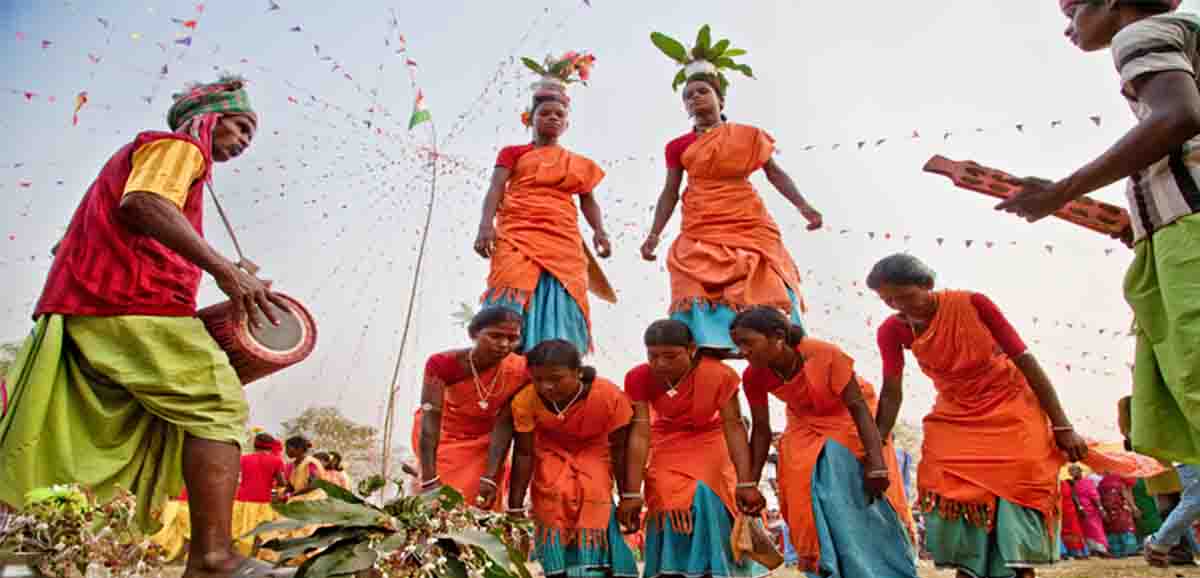The State Government’s policies and programmes for the welfare and development of backward classes and tribal communities have been successfully transforming people across Bangla.
Some of the main achievements:
Separate Tribal Development Department was created in 2013 by Chief Minister Mamata Banerjee
Department’s budget has increased by more than five times – from Rs 360 crore for financial year (FY) 2010-11 to Rs 1,878 crore for FY 2020.
Special recruitment drives undertaken for filling up vacant reserved posts – 2,669 posts for Adivasis and 10,241 posts for scheduled castes
Getting caste certificates is much easier now – through online application
Number of caste certificates being given has increased substantially – 9 lakh on an average every year
Almost 1 crore caste certificates can be viewed on the internet now
12 lakh schedule castes (SC), 1.5 lakh scheduled tribes (ST) and 7 lakh other backward caste (OBC) students at the secondary and higher secondary levels getting stipends
On an average, 10.5 lakh SC students and 2.25 lakh ST students getting scholarships under Shikshashree
Bicycles have been provided to 1 crore students (of all categories) from classes IX to XII under Sabooj Sathi Scheme
Sabooj Sathi has also been named a Champion Project at the WSIS Prizes 2019 given by the ITU, an organisation under the United Nations (award to be given on April 9)
Best performance in the country in providing skill development courses – 28,000 SC and Adivasi women trained in beautician course and another 1 lakh in plastic utensils making, stitching and other courses
Student loan for professional and vocational courses for SC and ST students – a maximum of Rs 10 lakh for studying within the country and a maximum of Rs 20 lakh for studying outside the country; this has been recognised as a model scheme by the Centre
Special training at 36 centres across the State for SC and ST students for getting admitted to government medical colleges, IITs and other recognised institutions
Assistance for self-help groups (SHG) run by women belonging to SC and ST communities has resulting in self-employment opportunities for 75,000 women on an average every year
35,000 kendu leaf collectors covered under the West Bengal Kendu Leaves Collectors’ Social Security Scheme, a part of the 2015 Samajik Suraksha Scheme; these people are also covered by the Swasthya Sathi Scheme
Under the Forest rights Act, 2006, 46,500 ST people distributed personal patta deeds and 323 community pattas for ‘Jaher Than’ distributed
Special law promulgated to prevent transfer of tribal land
20 development and culture boards formed for 20 communities
Kurukh, Kamtapuri and Rajbanshi recognised as State languages
Special recognition for Santhali language: Made an elective language for WBCS examination; school textbooks brought out in ol-Chiki; trilingual dictionary (Santhali-English-Bengali) published
To give recognition to Adivasi people and their cultures, Jangalmahal Utsav started, and special days like Adivasi Divas, Karm Divas and Hul Divas being celebrated every year
India’s first State Assembly-mandated Scheduled Caste Advisory Council formed
Under the chairpersonship of Chief Minister Mamata Banerjee, Tribal Advisory Council and Scheduled Caste Advisory Council regularly undertaking development programmes
File Image

